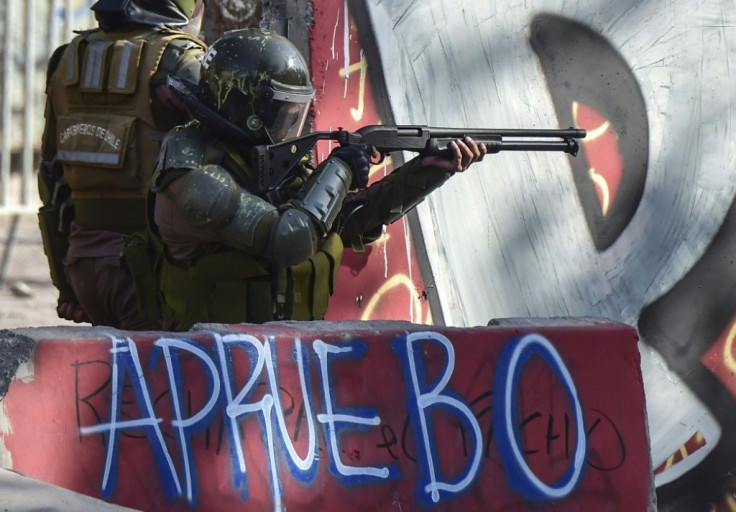Latin American Leaders Used State Repression Against Protests: Amnesty

Protesters across Latin America faced rampant violence and state repression as millions took to the streets to protest inequality, corruption and impunity in 2019, Amnesty International said Tuesday in its annual report on the region.
"Intolerant and increasingly authoritarian leaders" used ever-more violent tactics "to stop people from protesting or seeking safety in another country," said Erika Guevara Rosas, Amnesty's director for the Americas.
In total, at least 210 people died violently in the context of protests across the Americas, the report said: 83 in Haiti, 47 in Venezuela, 35 in Bolivia, 31 in Chile, eight in Ecuador and six in Honduras.
Highlighting protests in Chile, Ecuador, Bolivia, Colombia, Honduras, Venezuela, Haiti and Puerto Rico, Amnesty said authorities typically responded "with repressive and often increasingly militarized tactics" instead of mechanisms to promote dialogue and address protesters' concerns.
The organization highlighted severe repression in Venezuela, with President Nicolas Maduro's security forces responsible for "extrajudicial executions, arbitrary detentions and excessive use of force that could amount to crimes against humanity."
In Chile, security forces had "set out deliberately to injure protesters" to discourage protests in which four people were killed and thousands wounded.
Colombia remained the deadliest country for human rights defenders, with at least 106 killings, mostly of indigenous leaders.
"Impunity remains the norm across the region," it said, citing Guatemala's shut-down of a UN-backed anti-corruption commission.
"With yet more social unrest, political instability and environmental destruction looming over the region in 2020, the fight for human rights is as urgent as ever," it said.
© Copyright AFP 2024. All rights reserved.





















